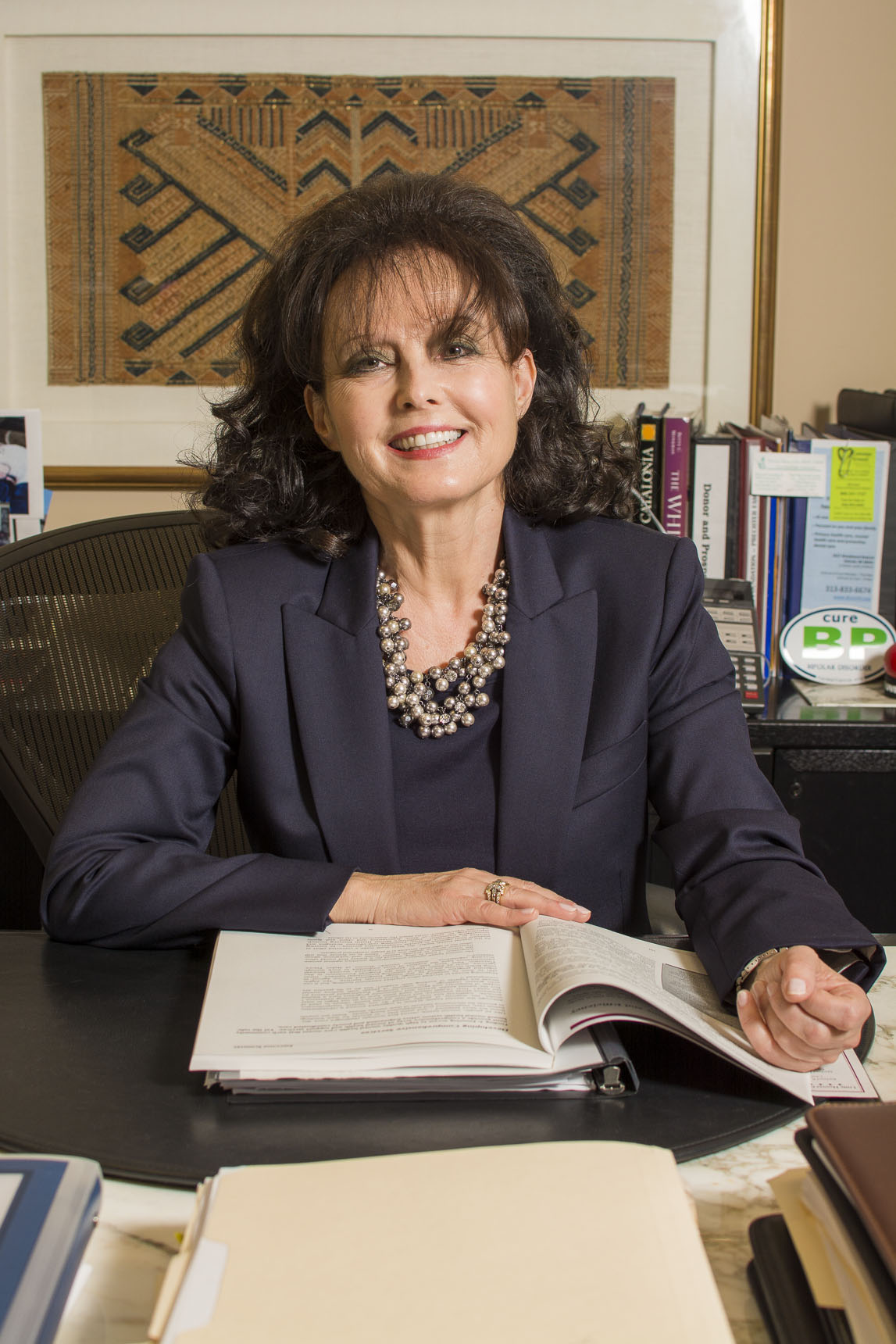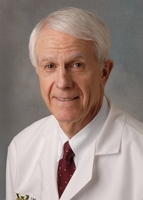Inspired by her late husband's model of giving, Waltraud “Wally” Prechter is known for making a powerful impact through her philanthropy. Her generous gift of $1 million creates the Prechter Family Endowed Fund, providing critical resources for the existing Translational Research Innovation Grant program at the Kresge Eye Institute and the Wayne State University School of Medicine’s Department of Ophthalmology, Visual and Anatomical Sciences.
“Heinz said that if you believe in it, you should support its success,” Wally Prechter said of her philanthropy philosophy.

The Kresge Eye Institute is one of the nation's premier medical centers for the preservation of sight. As a part of the School of Medicine, KEI brings its clinical ophthalmologists into close working relationships with the vision scientists of the Department of Ophthalmology, Visual and Anatomical Sciences to promote innovative research. The organizations serve as national leaders in the study and treatment of cataracts, corneal disease, glaucoma, oculoplastic and reconstructive surgery, diabetic retinopathy, retinal diseases, and neuro-ophthalmologic diseases.
The Translational Research Innovation Grant, or TRIG, program challenges clinical faculty and full-time research scientists to design new ideas for translational, or bench-to-bedside research in ophthalmic health. Over time, three focus groups have formed to establish dialogue and facilitate ideas: a team studying the retina is working on a new treatment for proliferative vitreoretinopathy, another on inflammation and immunology concerns that can influence diseases, and a third group concentrates on diabetic retinopathy and biomarkers that may provide clues on how to prevent the condition.
Wally Prechter’s unique endowed fund will be both strategic and significant for vision research at the School of Medicine and KEI in supporting novel projects from their conception. Ideas originating from the focus groups are eligible for departmentally-funded grants from the TRIG program, and the grant dollars are used to refine the selected projects before submission to the National Institutes of Health, National Eye Institute or other research funding organizations. Priority is given to applications that are translational in nature.
Before Wally Prechter’s endowed contribution, the department had the resources to fund one or two grants each year. The Prechter Family Endowed Fund will fund grants in perpetuity, providing an outstanding opportunity for KEI and the School of Medicine to explore past the boundaries of current scientific understanding.
“Innovative, translational research is especially important to me, and I have a long-standing history of supporting it,” she said. “Seed money before R01 and NIH grants is hard to come by, so these grants offer an incentive for stimulating ideas. I hope to inspire others to give to ambitious, out-of-the-box research.”
She established the Prechter Family Endowed Fund as a tribute to Professor Gary Abrams, M.D., a vitreoretinal surgeon recognized for both surgical innovation and teaching. From 1994 to 2011, Dr. Abrams was chair of the Department of Ophthalmology at the Wayne State University School of Medicine and director of Kresge Eye Institute, holding the David Barsky, M.D. Endowed Chair in Ophthalmology.
“Dr. Abrams is well known on an international level for his research and surgical expertise. I hope that this gift can make a difference from the very beginning of research for him and his talented colleagues. I wanted to do something to honor his legacy, and KEI is the right place. I served on its Board of Visitors, and their work is important, as we need more solutions for vision concerns,” Wally Prechter said.
Throughout his career, Dr. Abrams has been a leader in the development of surgical techniques for repair of complex retinal detachments. Wally Prechter came to know his work as a patient in the 1980s and 1990s. Dr. Abrams’s retinal surgeries allow her to see without glasses.

“I am touched by Mrs. Prechter’s generosity and of her thinking of me. The Prechter Family Endowed Fund supports early research that can lead to treatments for severe, currently untreatable, eye diseases. I believe this gift will be a valuable step in providing relief for patients all over the world,” Dr. Abrams said.
There are often more innovative ideas for research than dollars allocated to support them, but Wally Prechter’s philanthropic partnership ensures that KEI and the Department of Ophthalmology, Visual and Anatomical Sciences have much-needed preliminary resources for investigation now and for many years to come. Specially-designated funds for the TRIG program ensures gifted researchers in the clinic and laboratory can continue to ask questions and look for answers to ensure that all patients, even those with the most complex vision problems, receive the most effective treatment available anywhere.
To learn more about how to support the School of Medicine, the Department of Ophthalmology, Visual and Anatomical Sciences, and the Kresge Eye Institute, contact Alan Tolcher at atolcher@med.wayne.edu or 313-577-6482.